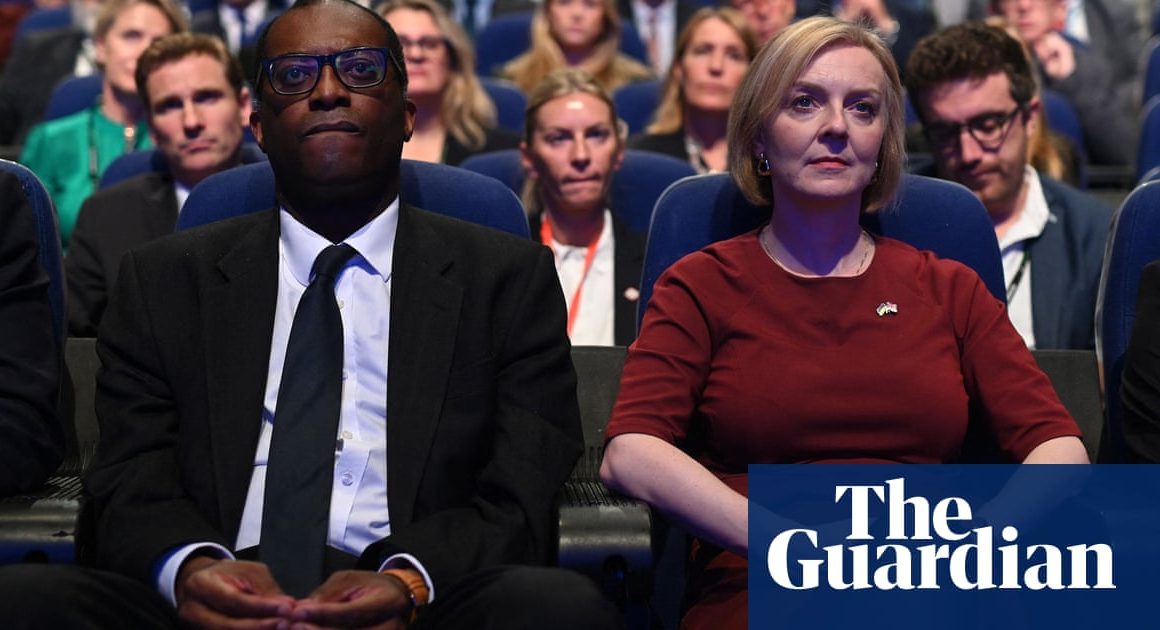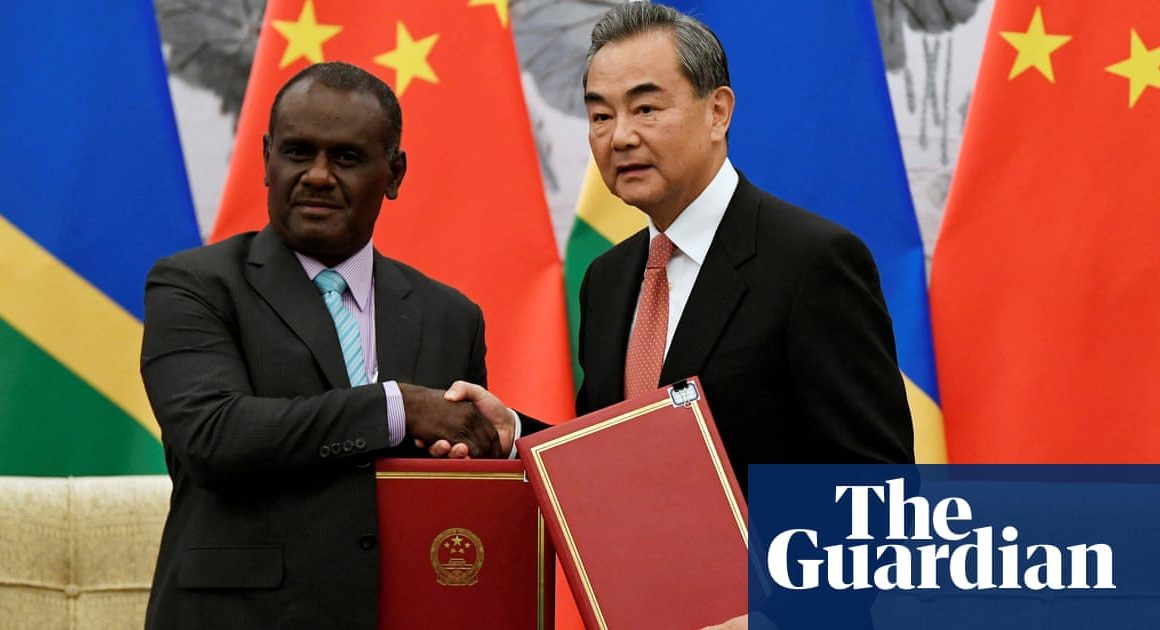Key events
Applications spike ahead of deadline tonight to register to vote in local elections
Anyone not registered to vote in the local, mayoral and police commissioner elections on 2 May has only a few hours left to apply, amid signs of a late surge in interest, PA Media reports. PA says:
A range of contests are taking place across England and Wales on polling day, with every voter able to take part in at least one type of election.
Nearly 2,700 council seats in England are up for grabs across 107 local authorities, while 37 police and crime commissioners in England and Wales will also be chosen.
Polls are also taking place to elect some of the most high-profile mayors in the country, including Greater Manchester, London and the West Midlands.
People who have not yet registered to vote, or are not sure if they are eligible, have until 11.59pm on Tuesday to submit an application.
This can be done online at gov.uk/registertovote.
Around 44 million people are estimated to be eligible to vote in the elections on 2 May, but as many as seven million people are either incorrectly registered or missing from the register entirely, according to the Electoral Commission, which oversees all elections in the UK.
Some 43,037 applications were made on Monday, the highest for a single day so far this year and some way above the previous peak of 31,496 on April 2, government figures show.
Here is the clip of Liz Truss telling Chris Mason, the BBCâs political editor, that the legislation imposing a gradual ban on smoking is unconservative.
Humza Yousaf claims voting Green in Scotland could harm independence cause
Humza Yousaf, Scotlandâs first minister, has claimed that voting Green in Scotland at the general election could harm the independence cause.
Although the Scottish Greens support independence, like the SNP, Yousaf argued that people voting for them would reduce the chances of the SNP winning seats at Westminster.
The two parties have a power-sharing agreement at Holyrood, and two Green MSPs are Scottish government ministers, but, as PA Media reports, cracks have been beginning to show in the pact in recent weeks as they gear up for the election. The Scottish Greens have said they will field at least 32 candidates north of the border at the general election â their highest number ever.
In an interview with BBC Radio Scotland, Humza Yousaf said his coalition partners â whom he has repeatedly praised, referring to the deal between the two as âworth its weight in goldâ â were unlikely to win a seat in Scotland but could detract from their shared goal of separation. He said:
If you believe in independence, you want to advance the cause of independence, then I would urge people to vote for the SNP.
To be clear, though we are in government with the Greens we are â to state the obvious â different political parties that will often compete in a number of different elections.
Therefore, yes, I think thereâs a real danger for those that believe in independence, believe in progressive values that if you vote for the Greens, that could end up taking votes away from the SNP.
And with the greatest of respect to my Green colleagues, theyâre not going to win a Westminster seat in Scotland.
Liz Truss wrong to call for supreme court to be abolished, says minister
In another interview this morning, Laura Farris, minister for victims, told GB News that she thought Liz Truss, the former PM, was wrong to call for the supreme court to be abolished. Asked about the proposal (one of many provocative things Truss has been saying in interviews to promote her new book), Farris said:
Iâve got to say, I donât agree actually. I think that we have a healthy democracy, a pluralistic democracy.
And I think that institutions like the supreme court are vital, actually. And itâs always been the case that ⦠our judiciary is admired the world over.
Laura Farris, a Home Office minister, was doing the government interview round this morning. She said she supported the smoking bill because she took up smoking herself at the age of 12 and always regretted it. She told LBC:
I think this is a very, very sensible policy and Iâm not particularly interested in arguments about freedom on this one.
It took me years and years and years to quit. Itâs one of my biggest regrets, actually.
Iâve got two young kids now and the fact that they will never be able to walk into a shop and buy a packet of cigarettes is something I welcome.
I have never met a single smoker whoâs glad they did it, wishes that their children do it, can identify a single health benefit or any other life benefit.
It gets you hooked. Itâs a horrible habit. And even when youâre doing it, you know that youâre causing yourself irreparable harm. And itâs incredibly difficult to get off.
Public support for gradual ban on smoking does not mean it’s good policy, says Truss ally Simon Clarke
Opinion polls rarely offer Rishi Sunak any comfort these days but, on the proposed gradual ban on smoking, they provide welcome reading for No 10, because they have consistently shown high levels of public support for what the government is doing.
Here are figures from a YouGov poll last October, showing that 62% of people support either the proposed gradual ban on smoking or something even stronger (an immediate ban).
And this chart, from a More in Common report, suggests that a gradual ban on smoking is a policy that voters from all the main UK parties are more likely to support than oppose. Even Reform UK supporters, who you might assume would be ideologically aligned with the Liz Truss position (see 9.38am and 9.43am) on balance like it.
In his Today interview this morning the Truss ally Sir Simon Clarke was asked about polling, and figures showing that 70% of people who voted Tory in 2019 backed Sunakâs bill. Clarke fell back on the argument that, just because something is popular, that does not make it right. He told the programme:
There are some things, of course, which are not necessarily philosophically or practically right which would command support in the opinion polls.
I think probably if you were to do an opinion poll on bringing back hanging youâd find that there was a significant proportion of people who backed it, that wouldnât necessarily mean it was the right thing to do.
Liz Truss blames âunelectedâ health department officials for smoking ban, in apparent jibe at Chris Whitty
Liz Truss has blamed âunelected individualsâ in the Department of Health and Social Care for the governmentâs planned smoking ban, in apparent attack on civil servants such as the chief medical officer for England, Sir Chris Whitty. Ben Quinn has the story here.
MPsâ vote on gradual smoking ban set to expose Tory splits over key Sunak policy
Good morning. When David Cameron looks back on his premiership, one of the things he did that is most likely to be regarded as a positive achievement â now and in the future â was passing equal marriage legislation. But it only went through with opposition votes, because more than half of Conservative MPs opposed it. Today Rishi Sunak is asking MPs to vote for another piece of legislation which, potentially, could have a transformative effect on life in Britain. And, like Cameron, he is legislating against the grain of opinion in his party.
As Andrew Gregory and Ben Quinn report in our preview story, Prof Sir Chris Whitty, the governmentâs chief medical adviser, has been wheeled out to make the case for the tobacco and vapes bill, which would prevent anyone who is turning 15 this year, or younger, from ever being able to legally buy tobacco products and which is getting its second reading today. Sunakâs government is only responsible for health policy in England, but Scotland, Wales and Northern Ireland are set to adopt the legislation too.
Labour is backing the bill, and it seems certain to pass.
But Sunak has offered Tories a free vote, on the grounds that this should be a âconscience issueâ for his MPs, and dozens of Conservatives are expected to abstain or vote against. Technically this wonât count as a rebellion, because they wonât be defying the whip. But, to Sunak, it may feel like a revolt.
In his Daily Mail column last week Boris Johnson said the policy was insane. He wrote:
When the party of Winston Churchill wants to ban cigars, donnez-moi un break, as they say in Quebec – itâs just mad.
Another former PM, Liz Truss, told the BBC yesterday:
Weâre a free country. We shouldnât be telling people not to smoke and I worry about where it will lead.
And on the Today programme this morning Sir Simon Clarke, levelling up secretary in Trussâs short-lived cabinet, took the same line. He said:
There are good ways to tackle a problem like this and then there are bad ways, and I think that an outright ban risks being counterproductive, I think it actually risks making smoking cooler, it certainly risks creating a black market, and it also risks creating a unmanageable challenge for the authorities.
According to a report in the Daily Telegraph, more than 50 Conservative MPs are âpreparingâ to vote against the bill. And the Times says two or three cabinet ministers may refuse to support Sunak. In their story Chris Smyth and Steven Swinford write:
Two or three cabinet ministers are said to have privately signalled scepticism over the bill, with [Kemi] Badenoch among those unconvinced. She is yet to decide how to vote but has previously spoken of her discomfort with bans and wrote in The Times during her 2022 leadership campaign: âToo often people feel that whoever is elected, the answer is more government. By promising too much and trying to solve every problem, politicians donât reassure and inspire, they disappoint and drive disillusion.â
Steve Barclay, the environment secretary who was health secretary when Sunak announced his smoking policy, is also said to have misgivings about the wisdom of a ban. He will not vote against the policy which he is on record as praising, but may opt to abstain, citing a busy diary. Alister Jack, the Scotland secretary, is not expected to oppose the ban but is considering whether to abstain.
Does it matter if a sizeable number of Tory MPs fail to support their leader on this? In legislative terms, probably not very much. But Sunak will soon be fighting an election, and this shows that on at least one key issue (and one with which he is strongly identified personally â no one else in government is pushing this), he is not fundamentally aligned with the instincts of many people in his party. That helps to explain why Tory members seem to be losing faith in him.
Here is the agenda for the day.
8.45am: Rishi Sunak chairs a political cabinet, before the regular weekly cabinet meeting.
10am: Former Post Office executives David Miller and David Mills give evidence to the Post Office Horizon IT inquiry.
10.15am: Nigel Farage, the Reform UK honorary president, speaks at the National Conservatism conference in Brussels. Suella Braverman, the former home secretary, is speaking at 12.45pm and Miriam Cates, the co-chair of the New Conservatives group of Tory MPs, is speaking at 2.45pm.
11.30am: Downing Street holds a lobby briefing.
11.30am: Humza Yousaf, Scotlandâs first minister, speaks to the Scottish TUC conference in Dundee.
After 12.45pm: MPs begin the debate on the second reading of the tobacco and vapes bill. The vote will be at 7pm.
3.10pm: David Cameron, the foreign secretary, takes questions in the House of Lords.
After 3.50pm: Peers debate amendments to the safety of Rwanda (asylum and immigration) bill.
If you want to contact me, do use the âsend us a messageâ feature. Youâll see it just below the byline â on the left of the screen, if you are reading on a laptop or a desktop. This is for people who want to message me directly. I find it very useful when people message to point out errors (even typos â no mistake is too small to correct). Often I find your questions very interesting, too. I canât promise to reply to them all, but I will try to reply to as many as I can, either in the comments below the line; privately (if you leave an email address and that seems more appropriate); or in the main blog, if I think it is a topic of wide interest.












